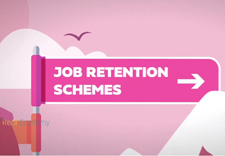Real Economy: Job retention schemes are keeping millions in work, what happens once they end?

date: 20/05/2021
At the end of April 2020, there were more than 42 million applications for support for employees on short-time work or similar schemes in the EU27. This amounts to almost 27% of all workers. As COVID measures are gradually phased out, however, how can Europe ensure there are enough jobs and that people have the right skills for the jobs of the future? European Commissioner for Jobs and Social Rights, Nicolas Schmit, believes that companies play a key role in training. "It's up to the companies to retrain, to reskill, to upskill a lot of their staff,” he says, adding that companies must "reskill those with the lowest level of skill because their jobs are also changing.” The European Commission’s EASE (Providing Effective Active Support to Employment) recommends that countries create new jobs by supporting entrepreneurs and training people in new skills to get jobs in growing sectors such as green and digital. To help finance this, there is money available from the Recovery Fund and the European Social Fund Plus. The EU’s goal emerging from the pandemic is a ‘strong social Europe’. Its Pillar of Social Rights Action Plan sets out three targets to be achieved by 2030. As Nicolas Schmit notes, “We need economic development, but at the same time, we also need social dimensions and cohesion in our societies.”
